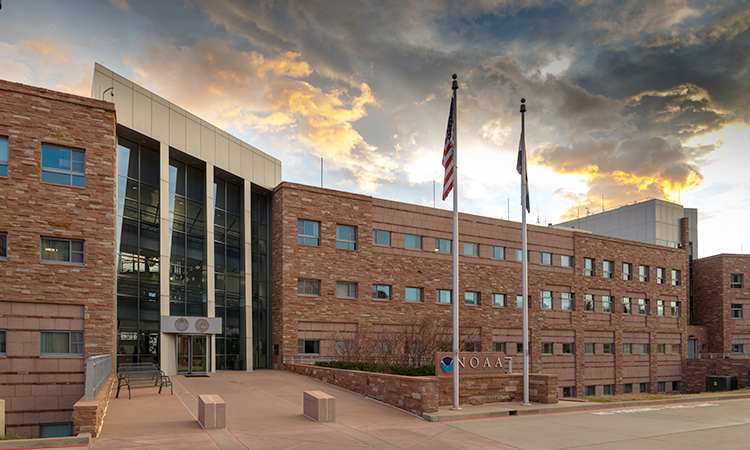A .gov website belongs to an official government organization in the United States.
A lock () or https:// means you've safely connected to the .gov website. Share sensitive information only on official, secure websites.

Ongoing global-scale measurements of long-lived gases provide unique information for addressing important science and policy-relevant questions. As a recent example, in May of last year we published results suggesting that a country or countries may have recently increased production of an ozone-depleting gas, an apparent contravention of the Montreal Protocol (doi: 10.1038/s41586-018-0106-2). The observational evidence is straightforward: the atmospheric concentration of CFC-11, the second most abundant ozone-depleting gas, is decreasing nearly half as fast as it was 5 years ago, and the slowdown started first in the northern hemisphere. These changes typically indicate increasing emissions, but this unsettling conclusion seemed highly unlikely, given that production of CFC-11 was reportedly banned in 2010. Equally implausible, however, was the alternative conclusion: that global atmospheric chemistry or dynamics had changed and altered the atmospheric decline of CFC-11. In this talk I'll update the scientific evidence supporting the assertion that CFC-11 emissions and production have increased in recent years and discuss implications for the ozone layer. I'll also discuss the international responses to this news, which include exhortations by UNEP's Ozone Secretariat to better understand and resolve this issue as soon as possible, reassessments of the control mechanisms in the Montreal Protocol by its Parties (nations of the world), accusations by independent investigative agencies of extensive use and production in China, China itself conducting extensive in-country searches for use and production of CFC-11 and not finding much, and scientists analyzing new measurements and modeling results in an effort to improve our understanding of the issue and provide a path towards an effective solution.
Steve Montzka received his PhD from the University of Colorado in Analytical Chemistry. He began his research career in the Aeronomy Lab as an NRC Postdoctoral Fellowship, and became a staff scientist in the Global Monitoring Division in 1991. He is the project leader of the Chlorofluorocarbons Alternative Monitoring Project and is responsible for ongoing global atmospheric measurements of approximately 40 chemicals at multiple remote sites across the globe that influence climate, stratospheric ozone, and air quality. He has received nine NOAA Outstanding Scientific Paper awards and been honored with the NOAA Administrator's Award and US Deparment of Commerce Silver Metal.
ALL Seminar attendees agree not to cite, quote, copy, or distribute material presented without the explicit written consent of the seminar presenter. Any opinions expressed in this seminar are those of the speaker alone and do not necessarily reflect the opinions of NOAA or CSL.